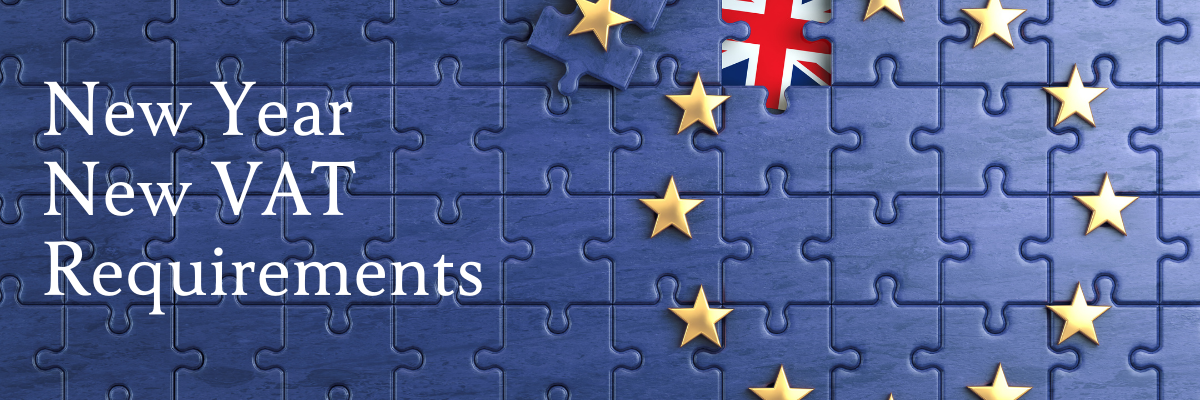New Year New VAT requirements

Unless you have been living under a rock, you will be aware that the UK left the European Union (EU) in January and that we have been in a transition period since then. This period will end on 31 December 2020. Regardless of whether any trade deal is reached, if you are a UK business that exports or imports goods to the EU, new Customs and VAT arrangements will mean making significant adjustments. If you have not already prepared for the changes it is important that you act immediately.
In broad terms, if you are a UK business based in Scotland, England or Wales the Customs and VAT arrangements for trading with EU countries will become like that for trading with non-EU countries. Northern Ireland (NI) will be treated differently so as to avoid a hard customs border with the Republic of Ireland (RoI) – more about that later.
Under the prior arrangements the UK did not have to register for VAT in each EU country it traded with. Now, to avoid goods being held in customs, you will need one or more EORI numbers to export to EU countries and Northern Ireland, to make sure any company you are exporting to has a EU EORI number and, if you move goods to your own premises based in Europe, you will also need an EU EORI number.
EORI stands for “Economic Operators Registration and Identification Number”. It is easy to apply for but if you haven’t already got one you must do so NOW as applications take about a week to process. Further details can be found on the government website www.gov.uk/eori.
You will also need to make customs declarations and VAT payments. The terminology will change too; ‘dispatches’ and ‘acquisitions’ will become ‘imports’ and ‘exports’.
The Northern Ireland protocol means that NI will be part of the EU Customs and VAT when it comes to trade with the rest of the EU including the Republic of Ireland. If you are based in Great Britain and moving goods to NI you will need a EORI number beginning with XI. However, from a Customs and VAT perspective, moving goods from NI to GB won’t change from 1 January.
In summary, if your business imports or exports to the EU and NI, changes coming into play on 1 January will cause a significant upheaval to your business processes. We recommend that you take the following actions right away and contact us at VAT@gwayre.co.uk here if you need any advice:
- Assess your supply chains
- Apply for any EORI numbers you will need
- Prepare to account for and pay for VAT on imported goods
- Make sure you are complying with the new reporting requirements (this may mean updating your IT systems)
- Consider whether you might need the help of a Customs Agent or Freight Handler
- Check if you need any export licences or certificates
More information can be found in our previous blog post.
If you have any specific queries about what Brexit means for your business then please contact Greaves West & Ayre and we shall be happy to assist and advise you.


